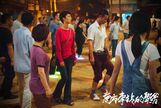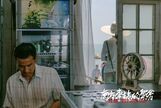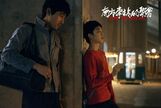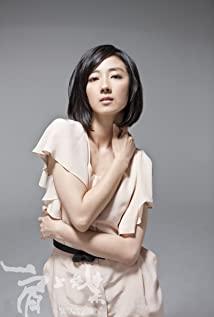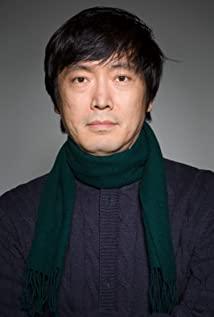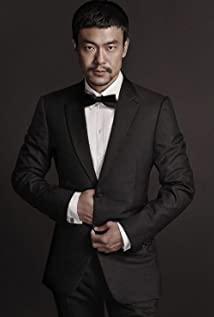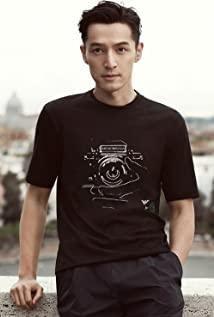Urban space is not only the background of the story in many films, but also part of the film narrative. In movies, cities are often identified through different visual symbols and presented through images. At this time, the city is the origin of the film's narrative. When the director deliberately sets the story in a certain city, at this time, the city is a container that accommodates all the sorrows, joys and sins, and all the director's paranoid thoughts.
Recently, Diao Yinan's work "The Party at the South Station" was released. As Diao Yinan's third work, "The Party at the South Station" has been strengthened in terms of the director's style, showing a unique urban noir temperament. Although such a film style is not the first creation of Diao Yinan, it is undoubtedly an attempt and challenge to put elements of film noir in a modern city in the entire Chinese film world.
"The Gathering at the Southern Station" sets the background of the story in Wuhan, a city that was once a shining pearl in Chinese history, and the stories and legends about it have never stopped. Today, Wuhan has left a large number of historical witnesses, which are part of Wuhan culture and the origin of countless legends and stories.
In recent years, Wuhan has entered an unprecedented period of development, the boundaries between past and present are gradually blurring, and the history and memory of the city are gradually fading. Although people are amazed at the speed of urban construction, the sighing events have never stopped. The historic buildings that have witnessed the development of the city are constantly being destroyed and rebuilt.
In the continuous restart, countless stories also began to appear, such as Wang Jing's "Ten Thousand Arrows Piercing the Heart", Lou Ye's "Mystery of the Floating City", Miao Yue's "The Taste of Hot Dry Noodles", Huo Jianqi's "Life Show" There is also the recently released Diao Yinan's "Party at Southern Station". So, what is Wuhan like?
Key words: Wang Jing's Ten Thousand Arrows Piercing the Heart, marriage, women, family tolerance
Released in 2012, "Ten Thousand Arrows Through the Heart" has been well received by many audiences. The story takes place in Wuhan in the 1990s. A husband and wife have a new home because of a business division. After the move, all kinds of changes were unexpected. The wife found out that her husband was cheating, and the husband committed suicide after a series of blows. The wife's friend attributed the reason to the bad feng shui of the new house, because the location of the house "pierced through the heart". The stubborn wife is unwilling to compromise with life and is determined to prop up the family.
Director Wang Jing used a series of events to show the pungent, stubborn and strong women in Wuhan just right, and the formation of this character is not unrelated to the social tide of the 1990s. The peculiarities of the 1990s need not be repeated. The state-run system was transformed, a large number of workers faced layoffs and unemployment, and the individual economy began to flourish. At this time, the gap between the rich and the poor and the social class gradually widened.
The husband Ma Xuewu in the movie is a beneficiary of the state-run system, and the pressure he bears is actually the pressure that most junior leaders in the system endured in the 1990s. They are concerned that the transformation of the system will affect their identity, status and income, and they also want to be the beneficiaries of the new system. His wife, Li Baoli, is a representative of the individual economy. She has her own stall, and her business is not bad. But she and her husband are people of two worlds, just like the contradiction between the state-run system and the individual economy.
In the end, Ma Xuewu, like the state-run system, had to disintegrate, and Ma Baoli and her individual economy became the key to supporting a family. Unfortunately, it is only enough to satisfy food and clothing.
The first time I watched "A Thousand Arrows Through the Heart", I just felt that the director told the story of a woman. Now I revisit it and realize that "Wan Arrows Through the Heart" is not about life, but the times. Changes in economies mean changing times, and the individuals living in them become part of a comedy or tragedy. The director expresses his views on the current era in this way. Wuhan is just a microcosm. Through this "microcosm" of modernization, we can see the anxiety of countless Ma Xuewu and the hardships of countless Li Baoli.
Key words: Lou Ye's "Mystery of the Floating City", the secret of death, marriage, affair
Lou Ye's lens has always been cruel and terrifying. Through his lens, one can see the truth of naked desire and unadorned human nature. In "Mystery of the Floating City", Lou Ye still uses this narrative method to connect two different families, and then tore off the hypocrisy of each family layer by layer.
Wuhan, under the lens of Lou Ye, is full of conspiracy and desire, the second generation of wealthy people who care about their lives, secret lovers, infidels in marriage... These characters carry secrets and conspiracies, but pretend to be elegant and noble , However, no matter how the secret is hidden, there will be a day when it will be revealed to the world. There's something scarier than hiding secrets that point to conspiracies and tragedies, and we don't know who the ultimate victims are.
The story begins with the tragic death of a college student Mosquito. Police Tong Mingsong is in charge of investigating a car accident. After the death of Mosquito, Tong Mingsong decides to invite Qin Feng, a car mechanic who used to like mosquitoes, to investigate together. The two people accidentally involved Qiao Yongzhao and Lu Jie when investigating the death of a mosquito. Lu Jie met Sang Qi through her daughter's kindergarten friend Yuhang, but the two mothers accidentally discovered her husband's affair when they were dating.
In this story, Lu Jie represents the traditional concept in modern life. She has always been a good wife and mother, and maintains the stability of the family in this way and attitude. After discovering her husband's affair, she was both unwilling and helpless. Despite being a modern woman, she still cannot escape the shackles of traditional ideas.
Compared with Lu Jie, Sang Qi is a more complicated character. Although she represented the modern concept, the child prevented her from breaking away from the traditional concept and changed the trajectory of her life. Everyone is responsible for their own choices and actions, and so does Sanqi.
Lou Ye went around in a circle, and finally returned to the theme of desire, but in Wuhan, such desire is more real and more incomprehensible. Cities are constantly moving towards modernization, and the people living in them are still unable to get rid of the shackles and curses of tradition.
Key words: Huo Jianqi's "Life Show", food and marriage, suffering from pain in life
Huo Jianqi put the story on Jiqing Street in Wuhan, Hubei Province. This street is a night market with a long history. Although it has been managed many times, it is still full of vitality. The heroine of the story is Lai Shuangyang. She is beautiful, coquettish and charming. She is single and runs a restaurant by herself. The characteristic duck neck attracts diners to linger here, partly because of the food and partly because of her.
Many men like women with stories. Of course, stories are the nourishment of women and nourish their souls. A woman without a story is like a blank piece of paper, simple and pure, but without charm. Lai Shuangyang is a woman with a story. The story endows her with beauty and coquettishness, as well as wisdom and strength.
Lai Shuangyang looks beautiful, but life has never treated her kindly. Her mother died young, her father remarried, and her younger siblings need her support. Failed marriage, single person, doubting love, but longing for warmth. The younger brother took drugs and entered the drug rehab center, and the older brother and sister-in-law coveted the old house at home.
She is beautiful and she is also sad. She was lucky and she was unlucky. This is probably life, when a window is opened, a door is closed. Fortunately, Wuhan gave Lai Shuangyang stubbornness and rationality, so that she could be flattering among the guests and get occasional care and warmth.
Key words: Diao Yinan's "Party at Southern Station" murder and escape conspiracy
The recently released "Party at Southern Station" is also a story that happened in Wuhan, but Wuhan under the lens of Diao Yinan is not modern, nor is it full of food temptations, but sinful and unbearable. Getting used to seeing the liveliness of Wuhan, the appearance of Diao Yinan made the city of Wuhan suddenly become a "sin city".
"The Gathering at Southern Station" is a story about death and escape. With the tension of film noir, Diao Yinan interweaves adventure and love, making human nature and redemption compete repeatedly, blurring the boundaries of good and evil, and making human nature sway from side to side. . Such a story is very similar to Dostoevsky's Crime and Punishment.
Team Captain Liu, the fugitive Zhou Zenong, the swimmer Liu Aai, Zhou Zenong's friend Hua Hua, and his wife Yang Shujun, these characters entered this "party" one after another with their own stories and conspiracies. The erotic references in the film are very much like the humid air in Wuhan. In other words, in such a city, if there is no lust, it seems unreasonable if men and women just pass by.
The city itself is another name for desire. Feasting and feasting blurred the eyes full of desire, and the two sides of the dark street provided space and opportunity for sin. Therefore, this city has Zhou Zenong and Liu Aai.
Diao Yinan's Wuhan does not have much prosperity, nor does it have a trivial life and a conflicted marriage. His Wuhan is a city full of conspiracies. All people are participants in this conspiracy, and their purpose is to live a better life.
"The Party at the South Station" may be a fable about life or a fable about the city. In the face of life, all choices of good and evil are in vain, sin has long been doomed, and all that awaits is the coming judgment.
Every city has its own history and stories. Wuhan has a long history and countless unexpected and reasonable stories. It has a unique charm that attracts travelers, and it also has hidden sins waiting for the light to arrive.
The city is contradictory and full of temptation.
But no matter what the city looks like, the story that begins has an end. We will grow old and the city will not. The city will live forever, growing with new stories and secrets.
View more about The Wild Goose Lake reviews



